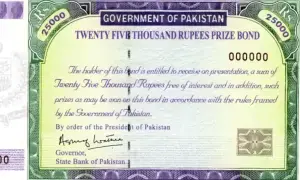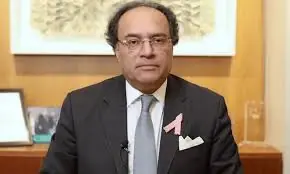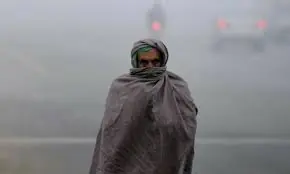Indian troops unilaterally tried to change status quo after crossing LAC: China
 —File Photo
—File PhotoBEIJING: China on Thursday held India responsible for the current border confrontation and said Indian troops from time to time tried to unilaterally change the status quo after crossing the west section of China-India boundary and Line of Actual Control (LAC).
“I stressed that for sometimes the Indian troops at the West section of China-India boundary and some other areas crossed the LAC and tried to unilaterally change the status quo,” Chinese Foreign Ministry Spokesperson Zhao Lijian said during his regular briefing while responding to questions on China-India border conflict.
He said Chinese troops are committed to uphold peace and tranquility in the border areas. They have been exercising restraint but they are determined to safeguard national sovereignty and security.
“We urge the Indian side to immediately withdraw their personnel crossing the line, strictly restrain its troops, observe the consensus reached by the leaders of the two countries and agreement existing so far and with us jointly uphold peace and tranquility in border areas,” he added.
Giving some details of the clash, he said on the night of June 15, Indian troops blatantly breached the consensus reached between the commander level meeting, again crossed the LAC and deliberately provoked and attacked the Chinese personnel when the situation in the Galwan Valley was already eased.
“As China stated on multiple occasions, the cause of this incident is that the Indian frontline troops blatantly breached the consensus reached between the commanders level meeting.”
He said China’s State Councilor and Foreign Minister Wang Yi held a telephonic conversation with Indian External Affairs Minister S Jaishankar regarding the incident happened on the western section of China India boundary, and apprised him about the Chinese position.
Both sides agreed to deal with the serious matter caused by this conflict in the valley in a just manner, jointly observe the commander level talk consensus and de-escalate the tension as soon as possible and safeguard peace and tranquility, he added.
He said, currently, the overall situation on China-India border areas is stable and controllable, adding, “We believe under the guidance and important consensus reached by leaders, the two sides can properly deal with the relevant matter, properly safeguard peace and stability at the border area and work for sound and steady development of the bilateral relations.”
To a question about the loss of Chinese troops during the conflict, the spokesperson said he has no information on that at the moment, adding, “I have stated our position on the conflict between China and India. Both sides are in communication through military and diplomatic channels to resolve the situation on ground.”
On Indian officials claim that an army colonel and others soldiers were attacked with iron rods by Chinese soldiers, he said this is very clear and responsibility does not lie with the Chinese side.
“On night of June 15, the Indian frontline frontier troops openly broke the consensus reached at the military-level meeting between the two parties. As the situation in the Galwan Valley had slowed down, they once again crossed the actual control line and deliberately provoked and attacked the Chinese officials and personnel who were there for negotiations,” he added.
Zhao Lijian said the Chinese side urged the Indian side to properly investigate this, severely punish those responsible for the incident, strictly control the frontline troops, and immediately stop all provocative actions and ensure that such incidents would not happen again.
After the phone call between the two foreign ministers, the both sides agreed to deal fairly with the serious situation caused by the conflict in the Galwan Valley in a just manner, jointly abide by the consensus reached at the military-level meetings and cool down the situation on the ground as soon as possible, and maintain peace and tranquility in the border areas in accordance with the agreement reached so far between the two countries, he added.
When asked to share future strategy of the two countries to ease the border situation, he said during his phone call with S Jaishankar, the Chinese foreign minister said both China and India are emerging forces with a population of over one billion people, and accelerating their own development and revitalization is our respective historical mission.
To this end, mutual respect and mutual support is the right way, which is in the long-term interests of the two countries; mutual suspicion and mutual friction is an evil way, contrary to the fundamental aspirations of the two peoples.
The two sides should follow the important consensus reached by the leaders of the two countries and strengthen the communication and coordination on the proper handling of the border situation through the existing channels such as the meeting mechanism between the special representatives of the Sino-Indian border and the meeting mechanism of the border defence force, so as to jointly maintain peace and tranquility in the border area.
He also said both sides agreed to deal with this matter in just manner, jointly observe the commander level meeting consensus and de-escalate the tension and follow the existing agreements and safeguard peace and tranquility in the border areas.
Meanwhile, according to Indian media reports, the second Major General-level talks between China and India in the wake of the violent faceoff in Ladakh’s Galwan Valley ended on an inconclusive note.
In the worst flare-up on the LAC in more than five decades, 20 Indian Army personnel, including the commanding officer of 16 Bihar, were killed Monday night in violent faceoff with Chinese troops in the Galwan Valley of Ladakh where disengagement of troops on either side was underway.
The disputed border covers nearly 2,200 miles of frontier that the two countries call the Line of Actual Control.
Though skirmishes are not new along the frontier, the standoff at Galwan Valley, where India is building a strategic road connecting the region to an airstrip close to China, has escalated in recent weeks.
India and China fought a border war in 1962 that also spilled into Ladakh. The two countries have been trying to settle their border dispute since the early 1990s without success.—APP



















Comments are closed on this story.